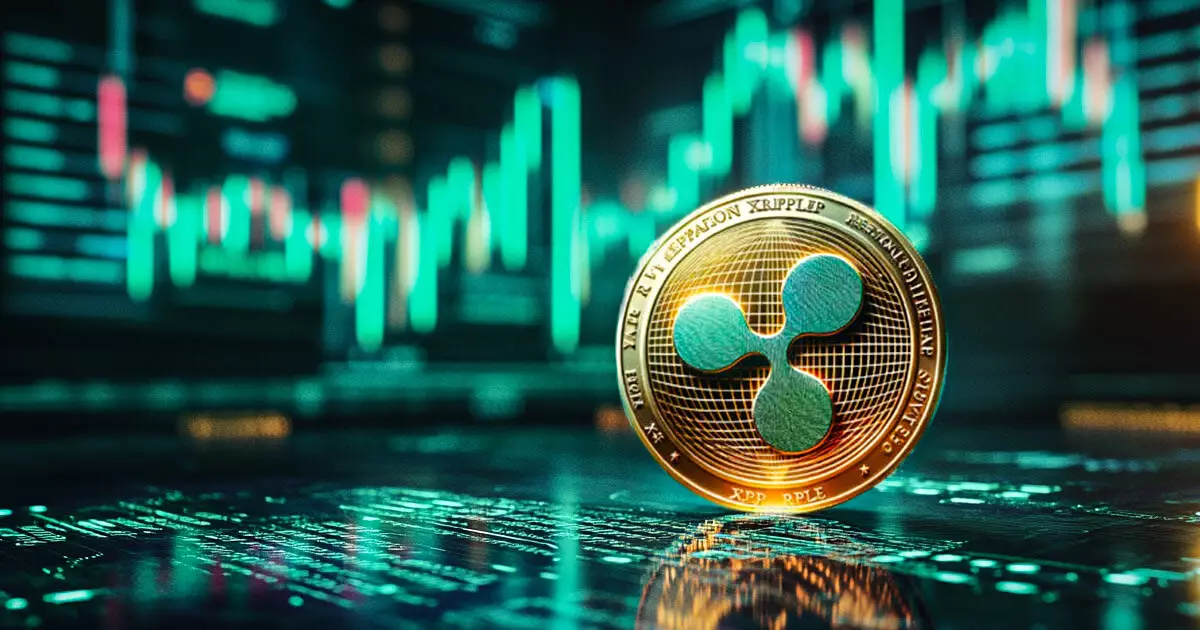The ongoing lawsuit involving Ripple and the U.S. Securities and Exchange Commission (SEC) is not merely a legal battle; it’s a litmus test for the future of cryptocurrency regulation in the United States. This high-stakes game of chess is not only about finances; it’s about principles, market integrity, and the broader implications for the cryptocurrency ecosystem. With the potential resolution looming, the stakes couldn’t be higher for XRP investors and the crypto community at large.
Recent whispers suggest that the SEC may soon conclude its long-standing litigation against Ripple, generating palpable excitement amongst investors. Speculation has triggered a significant jump in XRP’s value, soaring from around $2.14 to $2.24 in under an hour. This price shift reflects more than mere optimism; it underscores the market’s hunger for clarity amidst regulatory chaos. Ripple’s continuous efforts to negotiate terms maximizing their benefit post-judgment show an astute adaptation strategy, revealing their understanding of the ever-shifting regulatory landscape.
The Negotiation Battlefield
Negotiations over settlement terms have emerged as a critical battlefield. Ripple’s legal team is actively seeking concessions regarding an earlier ruling that deemed some of their institutional sales as investment contracts. This ruling triggered a hefty penalty that Ripple is understandably keen to contest. The SEC has recently indicated it may revise its approach under new leadership—could this herald a shift in the commission’s stance toward a more constructive regulatory framework? Ripple asserts that accepting past rulings would equate to an admission of guilt—an uneasy position given the SEC’s evolving interpretation of crypto regulation.
Adding to the complexity, the SEC’s legal maneuvers under the new chair, pro-crypto commissioner Mark Uyeda, may indicate a move away from the agency’s historically aggressive approach toward enforcement. With this new leadership, Ripple argues for a reconsideration of the penalties to better project the intention of the agency, which seems to be leaning toward regulatory clarity rather than obfuscation. This pivot is not merely about Ripple; it holds significant consequences for the entire cryptocurrency marketplace as it could dictate future enforcement actions against other firms, which are currently on a tightrope.
Ripple vs. The SEC: The Broader Implications
If Ripple can successfully negotiate a settlement that reduces or even eliminates penalties, it will mark a pivotal moment in the crypto world. The company’s assertion that enforcing antiquated rulings undermines innovation resonates across the industry. It raises the essential question: should companies be held accountable to regulations that no longer reflect the current market environment?
The case has profound implications for crypto firms contemplating their strategic futures, especially those considering initial public offerings (IPOs) or other offerings under regulatory scrutiny. Ripple’s legal fight illustrates a growing recognition among firms that they must navigate an unpredictable regulatory environment while simultaneously pushing forward innovative solutions.
However, the precarious position that Ripple occupies cannot be understated. Entering into a settlement that concedes past mistakes could potentially haunt Ripple in its future dealings with investors, regulators, and the market as a whole. It’s a paradox that echoes throughout the crypto industry; the need for compliance clashes with the hunger for innovation.
The Ripple Effect on Market Sentiment
As the price of XRP stabilizes and shows signs of recovery, it’s indicative of more than just Ripple’s fortunes; it suggests a resurgence of investor confidence in the broader cryptocurrency market. A favorable outcome would likely spur increased investment across the sector, unblocking funds waiting on the sidelines yearning for favorable regulatory conditions.
Nevertheless, a settlement that upholds the SEC’s previous rulings could stifle not only Ripple but also the industry’s growth, as it might deter new entrants wary of an unfriendly regulatory landscape. Consequently, the repercussions of Ripple’s legal outcomes will echo far beyond its balance sheet.
In a landscape where technology and regulation constantly intersect, the resolution of Ripple’s case may usher in either an era of clarity or chaos. The financial markets are in a state of flux, and the volume of discourse surrounding cryptocurrency regulations is a testament to the complex interplay of innovation, regulation, and integrity. As we witness these developments, differing opinions will undoubtedly shape the narrative and influence the actions of investors and regulators alike, ultimately determining the future of the cryptocurrency ecosystem.















